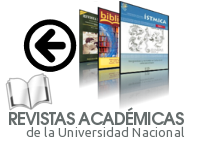Considerações dos alunos sobre as ações de resistência durante a ditadura chilena a partir da dimensão ética do pensamento histórico
DOI:
https://doi.org/10.15359/rp.28.6Palavras-chave:
ditadura civil-militar, ética, estudantes, pensamento histórico, Estudos Sociais, HistóriaResumo
O objetivo deste artigo é analisar as motivações e a relevância atribuídas pelos alunos às ações de resistência individual e coletiva desenvolvidas pelos cidadãos durante a ditadura chilena. Trata-se de uma pesquisa qualitativa exploratória que analisa 70 respostas elaboradas por 35 alunos do ensino médio de uma escola pública de Santiago do Chile. Os resultados mostram que os participantes acreditam que os sujeitos históricos se organizaram contra a ditadura por motivações gerais e a-históricas (defesa dos direitos humanos, perda do medo e desejo de mudança), além de valorizarem e apontarem que as ações coletivas dos cidadãos foram a principal causa da queda da ditadura liderada por Pinochet. Esse último fato demonstra a necessidade de tornar mais complexas as histórias difíceis e de trabalhar explícita e sistematicamente a partir da dimensão ética do pensamento histórico.
Referências
Ammert, N., Sharp, H. y Löfström, J. (2020). Identifying aspects of temporal orientation in students’ moral reflections. History Education Research Journal. 17(2), 132-150. https://doi.org/10.14324/HERJ.17.2.01
Ammert, N., Edling, S., Löfström, J., y Sharp, H. (2017). Bridging historical and moral consciousness: Promises and challenges. Historical Encounters: A journal of historical consciousness, historical cultures, and history education, 4(1), 1-13.
Barton, K. (2012). Agency, choice and historical action: How history teaching can help students think about democratic decision making. Citizenship Teaching & Learning, 7 (2), 131-142. https://doi.org/10.1386/ctl.7.2.131_1
Barton, K. y Levstik, L. (2004). Teaching history for the common good. Lawrence Erlbaum Associates.
Britzman, D. (2000a). Teacher Education in the Confusion of Our Times. Journal of Teacher Education, 51(3), 200–205. https://doi.org/10.1177/0022487100051003007
Britzman, D. (2000b). If the Story Cannot End: Deferred action, ambivalence, and difficult knowledge. En R. Simon, S. Rosenberg, y C. Eppert (Eds.), Between hope and despair: Pedagogy and the remembrance of historical trauma (pp. 27-57). Rowman & Littlefield Publishers.
Britzman, D. (1998). Lost Subjects, Contested Objects. Toward a Psychoanalytic Inquiry Learning. State University of New York Press.
Catela, L. (2002). El mundo de los archivos. En L. Catela y E. Jelin (Comps.), Los archivos de la represión: documentos, memoria y verdad (pp.195-221). Siglo XXI.
Chinnery, A. (2019). The bearing of historical consciousness. Historical Encounters: A journal of historical consciousness, historical cultures, and history education, 6(1), 96-109.
Chinnery, A. (2013). Caring for the past: on relationality and historical consciousness, Ethics and Education, 8 (3), 253-262. https://doi.org/10.1080/17449642.2013.878083
Correa, S., Figueroa, M., Jocelyn-Holt, A., Rolle, C. y Vicuña, M. (2001). Historia del siglo XX chileno: balance paradojal. Editorial Sudamericana.
Den Heyer, K. (2019). On ethical judgments in history education: A response to Milligan, Gibson, and Peck, Theory & Research in Social Education, 47(2), 294-298. https://doi.org/10.1080/00933104.2019.1583988
Den Heyer, K. y Van Kessel, C. (2016). Evil, Agency, and Citizenship Education. McGill Journal of Education, 50 (1), 1-18. Https://mje.mcgill.ca/article/view/9166
Denzin, N. y Lincoln, Y. (Coords.) (2013). Las estrategias de investigación cualitativa. Gedisa Editorial.
Epstein, T. y Peck, C. (2018). Introduction. En T. Epstein y C. Peck (Eds), Teaching and Learning Difficult Histories in International Contexts. A Critical Sociocultural Approach (pp. 1-15). Routledge.
Flick, U. (2004). Introducción a la investigación cualitativa. Ediciones Morata.
Garrett, J. (2017). Learning to be in the world with others: Difficult knowledge & social studies education. Peter Lang.
Garrett, J. y Schmidt, S. (2012). Repeating Until We Can Remember: Difficult (Public) Knowledge in South Africa. Journal of Curriculum Theorizing, 28 (1), 191-206.
Garrett, J. (2011). The Routing and Re-Routing of Difficult Knowledge: Social Studies Teachers Encounter When the Levees Broke. Theory & Research in Social Education, 39 (3), 320-347. https://doi.org/10.1080/00933104.2011.10473458
Gibbs, G. (2012). El análisis de datos cualitativos en investigación cualitativa. Ediciones Morata.
Gibson, L., Milligan, A., y Peck, C. (2022). Addressing the elephant in the room: Ethics as an organising concept in history education. Historical Encounters, 9(2), 45-63. https://doi.org/10.52289/hej9.205
Gibson, L. (2019). Ethical judgments about the difficult past: Observations from the classroom. En M. Gross y L. Terra (Eds.), History and Social Studies Education in a Context of Intolerance: Imagined Communities and Collective Memory (pp. 81-104). Routledge.
Goldberg, T. (2020). Delving into Difficulty: Are Teachers Evading or Embracing Difficult Histories? Social Education, 84 (2), 130-136.
Goldberg, T. (2017). Between Trauma and Perpetration: Psychoanalytical and Social Psychological Perspectives on Difficult Histories in the Israeli Context, Theory & Research in Social Education. https://doi.org/10.1080/00933104.2016.1270866
Gross, M. y Terra, L. (2018a). Introduction: What Makes Difficult History Difficult? En M. Gross y L. Terra (Eds), Teaching and Learning the Difficult Past (pp.1-8). Routledge.
Huneeus, C. (2003). El régimen de Pinochet. Editorial Sudamericana.
Jelin, E. (2017). La lucha por el pasado. Cómo construimos la memoria social. Siglo XXI editores.
Jelin, E. (2002a). Introducción. Gestión, política, gestión administrativa y gestión histórica: ocultamientos y descubrimientos de los archivos de la represión. En E. Jelin y L. Catela (Comps.), Los archivos de la represión: documentos y verdad (pp. 1-13). Siglo XXI Editores.
Jelin, E. (2002b). Los trabajos de la memoria. Siglo XXI.
Löfström, J., Ammert, N., Sharp, H., y Edling, S. (2020). Can, and should history give ethical guidance? Swedish and Finnish Grade 9 students on moral judgment-making in history. Nordidactica, 4, 88–114. http://urn.kb.se/resolve?urn=urn:nbn:se:kau:diva-81914
Ministerio de Educación de Chile. (2016). Historia, Geografía y Ciencias Sociales. Programa de Estudio Segundo Medio. Ministerio de Educación de Chile.
Miles, J. (2019). Seeing and feeling difficult history: A case study of how Canadian students make sense of photographs of Indian Residential Schools. Theory & Research in Social Education, 47 (4), 472-496. https://doi.org/10.1080/00933104.2019.1626783
Milligan, A., Gibson, L. y Peck, C. (2017). Enriching Ethical Judgments in History Education, Theory & Research in Social Education, 46(3), 449-479. https://doi.org/10.1080/00933104.2017.1389665
San Martín, D. (2014). Teoría fundamentada y Atlas.ti: recursos metodológicos para la investigación educativa. Revista Electrónica de Investigación Educativa, 16(1), 104-122. http://redie.uabc.mx/vol16no1/contenido-sanmartin.html
Seixas, P. (2015): A Model of Historical Thinking, Educational Philosophy and Theory, 49 (6), 593-605. https://doi.org/10.1080/00131857.2015.1101363
Seixas, P. y Morton, T. (2013). The big six historical thinking concepts. Nelson Education.
Sheppard, M. (2010). Difficult Histories in an Urban Classroom. Dissertation, University of Minnesota. https://conservancy.umn.edu/bitstream/handle/11299/94166/Sheppard_umn_0130E_11223.pdf?sequence=1&isAllowed=y
Simon R. (2011) A shock to thought: Curatorial judgment and the public exhibition of ‘difficult knowledge’. Memory Studies, 4(4), 432-449. https://doi.org/10.1177/1750698011398170
Simon, R. (2006) The terrible gift: Museums and the possibility of hope without consolation. Museum Management and Curatorship, 21(3), 187-204. https://doi.org/10.1080/09647770600202103
Simon, R. (2004) “The Pedagogical Insistence of Public Memory.” En P. Seixas (Ed.), Theorizing Historical Consciousness (pp.183-201). University of Toronto Press.
Simon, R. y Eppert, C. (1997). Remembering Obligation: Pedagogy and the Witnessing of Testimony of Historical Trauma, Canadian Journal of Education, 22 (2), 175-191. https://doi.org/10.2307/1585906
Simon, R. Eppert, C. y Rosenberg, S. (2000). Between hope and despair: pedagogy and the remembrance of historical trauma. Rowman & Littlefield Publishers.
Stake, R. (2013). Estudio de casos cualitativos. En N. Denzin y Y. Lincoln (Coords.), Las estrategias de investigación cualitativa (pp. 154-197). Gedisa Editorial.
Strauss, A. y Corbin, J. (2002). Bases de la investigación cualitativa. Técnicas y procedimientos para desarrollar la teoría fundamentada. Universidad de Antioquia.
Van Kessel, C. y Crowley, R. (2017) Villainification and Evil in Social Studies Education. Theory & Research in Social Education, 45 (4), 427-455. https://doi.org/10.1080/00933104.2017.1285734
Vásquez, G., Sánchez, M., Vásquez, N. y Muñoz, C. (2018). La transición democrática chilena ¿proceso pactado o brusca ruptura?: una mirada desde la perspectiva de los estudiantes secundarios. Tempo e Argumento, 10 (24), 247-278. https://doi.org/10.5965/2175180310242018247
Winn, P. (2016). La revolución chilena. LOM Ediciones.
Downloads
Publicado
Como Citar
Edição
Seção
Licença

Este trabalho está licenciado sob uma licença Creative Commons Attribution-NonCommercial-ShareAlike 4.0 International License.
Los autores que publican en esta revista están de acuerdo con los siguientes términos:
a) Los autores conservan los derechos de autor y garantizan a la revista el derecho de ser la primera publicación del trabajo bajo una Licencia Creative Commons Atribución-NoComercial-CompartirIgual 4.0 Internacional (https://creativecommons.org/licenses/by-nc-sa/4.0/) que permite a otros compartir el trabajo con un reconocimiento de la autoría del trabajo y la publicación inicial en esta revista (componente BY o atribución). Coincidente con la política de Acceso Abierto, no se podrán hacer usos comerciales de los contenidos publicados por esta revista (componente NC). Se permitirán las obras derivadas (remezcla, transformación o creación a partir de la obra original) siempre y cuando sean distribuidas bajo la misma licencia de la obra original (componente SA).
b) Los autores pueden establecer por separado acuerdos adicionales para la distribución no exclusiva de la versión original de la obra publicada en la revista (por ejemplo, situarlo en un repositorio institucional o publicarlo en un libro), siempre y cuando: a) sea reconocida la publicación original en esta revista (componente BY); b) no se haga uso del material de reuso con propósitos comerciales (componente NC); c) el material de reuso sea distribuido bajo la misma licencia de la obra original (componente SA).
c) Se permite y se anima a los autores a difundir sus trabajos electrónicamente (por ejemplo, en repositorios institucionales o en su propio sitio web) antes y durante el proceso de envío, ya que puede dar lugar a intercambios productivos, así como a una citación más temprana y mayor de los trabajos publicados (Véase The Effect of Open Access) (en inglés).


_11.55_.09_a_._m_._.png)
_1.34_.01_p_._m_._2.png)
_9.45_.02_p_._m_._.png)




_2.23_.09_p_._m_._.png)
_2.35_.17_p_._m_._.png)

